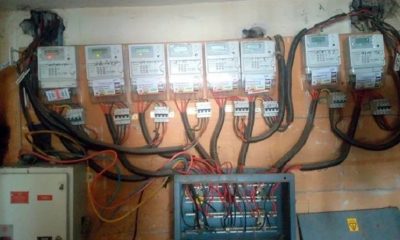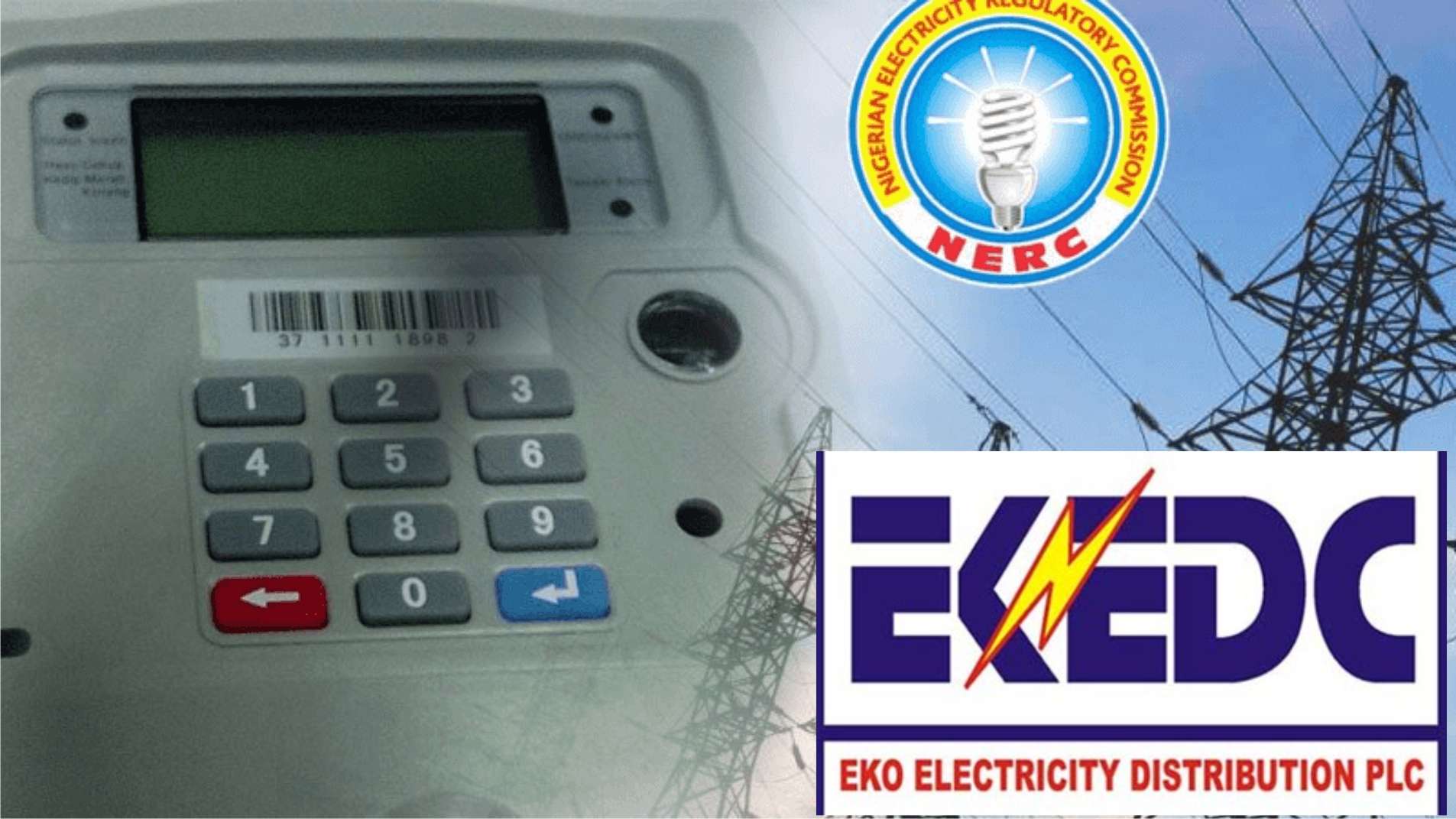General
FG to Pay N180.8bn Subsidy for Band B to E Customers
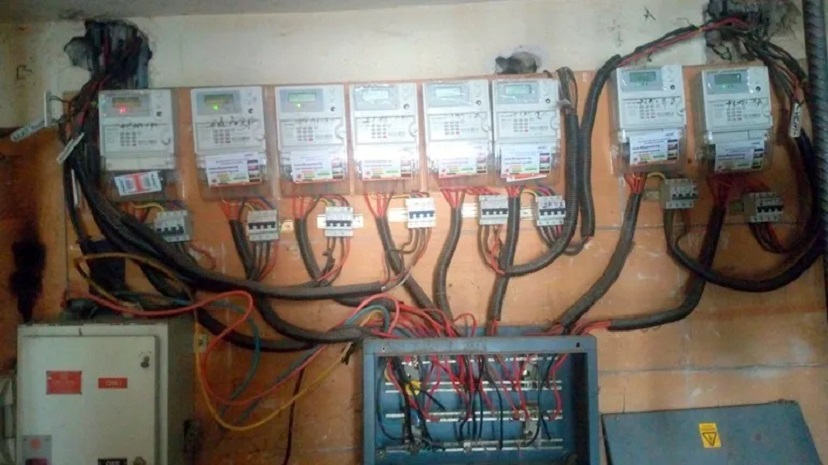
By Adedapo Adesanya
The Nigerian Electricity Regulatory Commission (NERC) says the federal government is set to pay approximately N180.8 billion in electricity subsidies for power consumers in Bands B to E whose tariffs have remained frozen since December 2022.
Band B to E customers get between 4 to 16 hours of electricity on average and pay around N68 per kilowatts.
Also, according to NERC’s 2023 Annual report released in Abuja on Monday, about 7.3 million electricity customers remain unmetered in the country.
These developments were outlined in the September 2024 Supplementary Order of the Multi-Year Tariff Order (MYTO) of 2024, which was also issued yesterday in Abuja by the power sector regulator, led by Mr Sanusi Garba.
The latest figures released by the regulator showed that out of over 13.16 million registered customers, the electricity distribution companies also known as the DisCos, have been able to meter only 672,539 customers.
This shows the slow-paced metering efforts by the DisCos, leaving a larger amount of customers heavily relying on the controversial estimated billing system.
As of 31st December 2023, only 5,842,726 (44.4 per cent) of the registered 13,162,572 customers in the Nigerian Electricity Supply Industry were metered.
DisCos installed 672,539 end-use customer meters in 2023. A total of 25,847 meters were installed under the National Mass Metering Program (NMMP) framework while 585,265 meters were installed under the Meter Asset Provider (MAP) framework.
The report showed that 6,912 meters were installed through the Vendor Finance Metering framework, while 53 end-use customer meters were installed through the DisCo Financed framework.
This is as industry experts have raised concerns that the slow pace of metering could worsen billing disputes and customer dissatisfaction.
Meanwhile, electricity subsidy dropped to N151.30 billion during the year, indicating a 17.7 per cent decline from 2022.
The report read: “A Minimum Remittance Obligation (MRO) adjusted invoice of N858.03 billion was issued by Nigerian Bulk Electricity Trading plc (NBET) and Market Operator (MO) for energy costs and administrative services to DisCos in 2023.
“The DisCos remitted a total of N706.73 billion, resulting in a deficit of N151.30 billion during the year. Based on the above, the gross DisCo remittance rate to the upstream segment for 2023 was 82.37 per cent.”
According to the report, NERC has approved N26.4 billion for Abuja consumers, N23.76 billion for Ikeja Disco, N22.21 billion for Ibadan Disco, N19.92 billion for Eko Disco, and N14.87 billion for Benin Disco this month.
In the September subsidy cycle, Enugu Distribution Company (Disco) is set to receive N14.61 billion, while Port Harcourt Disco will be allocated N13.45 billion. Kaduna Disco will benefit from N13.14 billion, Kano Disco will receive N12.96 billion, and Jos Disco will be entitled to a subsidy of N11.68 billion. Yola Disco is slated to get N8.06 billion in this round of disbursements.
“In line with the policy direction of the federal government on electricity subsidy, the allowed tariffs for Bands B-E customer categories shall remain frozen at the rates payable since December 2022 subject to further policy direction by the government,” NERC said.
In addition, NERC has imposed fines totalling N8.3 billion on the country’s 11 DisCos for overcharging customers. NERC has also directed the Discos to compensate affected consumers for the improper billing.
General
Eyesan Promises Enhanced Transparency, Digital Transformation at NUPRC

By Adedapo Adesanya
The chief executive of the Nigerian Upstream Petroleum Regulatory Commission (NUPRC), Mrs Oritsemeyiwa Eyesan, has promised to enhance transparency and ensure that the NUPRC’s internal communications are fully digital.
Mrs Eyesan said this when the Executive Secretary of the Nigeria Extractive Industries Transparency Initiative (NEITI), Mr Musa Adar, visited the commission’s corporate headquarters in Abuja.
“We have set for ourselves a 60-day programme to digitise our interactions and communications within the commission. I can assure you that once we get to day 60, there will be no paper trail within the Commission. All our transmissions will be electronic, which also means speed is assured. It means we will be able to trace where we have hiccups,” Mr Eyesan said.
The NUPRC boss said digitising processes often leads to better results, like the enforcement of payments of royalties.
“I can tell you without a shadow of doubt that for royalty payments, the default rate was enormous prior to 2025 when the Commission went live on the system. Now, compliance has improved,” Mrs Eyesan said.
The NUPRC boss sought a deepened relationship with NEITI, which will foster transparency, especially amid the 2025 Licensing Round.
In his remarks, the NEITI’s scribe said there was a need for the NUPRC to carry the agency along in its operations as this would not only enhance transparency but also deepen investor confidence.
Mr Adar also urged the commission to be firm on oil companies that run afoul of the Petroleum Industry Act.
Speaking on the Extractive Industries Transparency Initiative, Mr Adar asked that the NUPRC actively participate in the 2026 EITI flagship conference, which will provide the Commission with better insights into the standards that guide EITI implementation.
The NEITI boss also sought support from the Commission in the area of data sharing, which will enhance the operations of the agency.
“We are here to seek understanding, and we must collaborate,” Mr Adar said.
General
Tinubu Tasks Acting IGP Disu to Restore Peace, Strengthen Security Nationwide
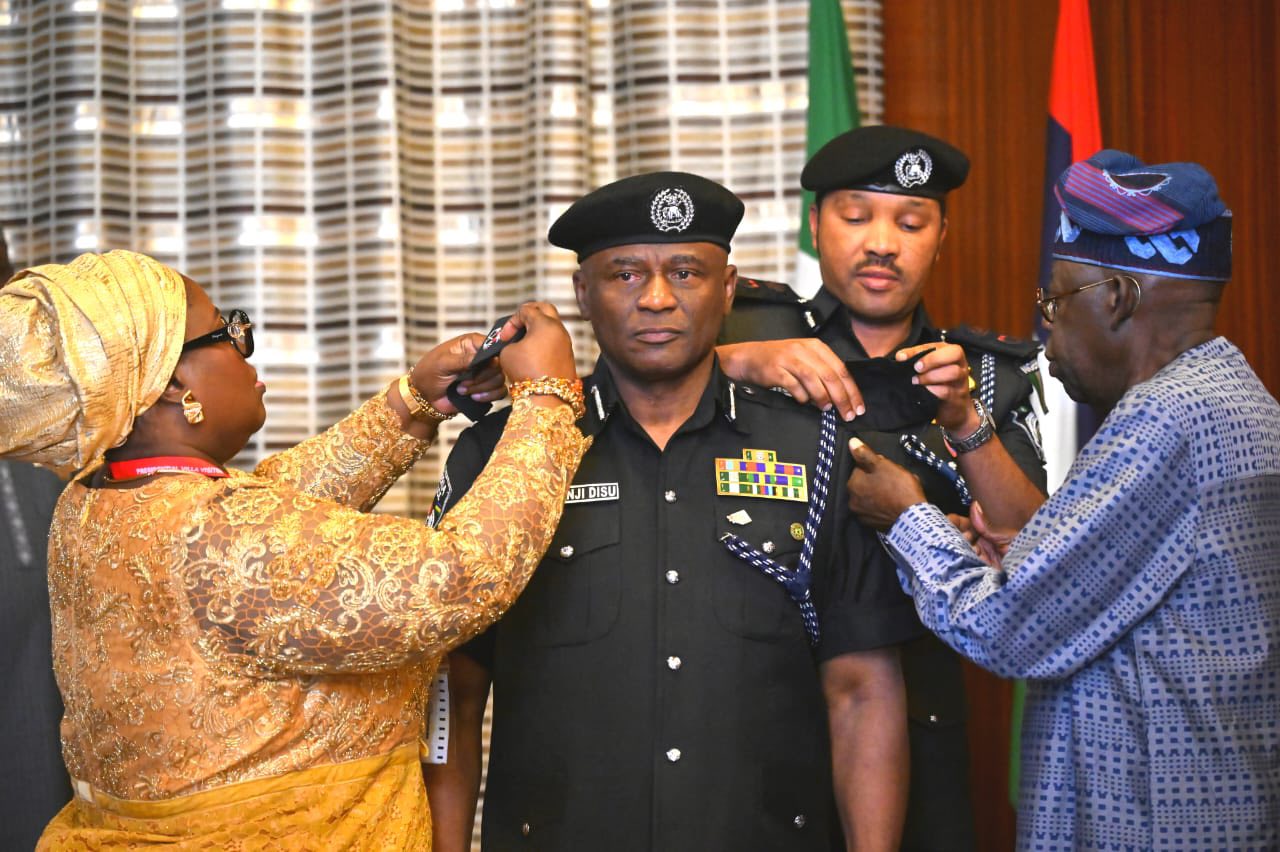
By Modupe Gbadeyanka
The acting Inspector-General of Police (IGP), Mr Tunji Disu, has been charged to do everything within his powers to restore peace and strengthen security across the nation.
This task was given to the new police chief by President Bola Tinubu after being decorated at the State House in Abuja on Wednesday.
Mr Disu was chosen to succeed Mr Kayode Egbetokun on Tuesday. His appointment is expected to be approved by the Nigeria Police Council and confirmed by the Senate next week.
President Tinubu described Mr Disu’s appointment as coming at a critical moment, urging him to rebuild public confidence in the police’s capacity to do their job in collaboration with other security forces.
“I made this decision for you to assume this responsibility. I know your record. I saw the dedication you exhibited while you were in Lagos when I was governor,” the President said.
“Lead firmly but fairly, demand professionalism at every level and ensure that the safety of lives and property remains our highest priority. It’s a daunting challenge. I know you can do it. You have my word, you have my full support,” he added.
Mr Tinubu urged him to advance the security pillars of his administration’s Renewed Hope Agenda. He expressed confidence in the Acting IGP’s discipline, operational experience and leadership capacity.
“Nigeria is challenged with banditry, terrorism and other criminal activities. You will be part of the thinking and innovation to overcome them,” the President said, reaffirming his belief that Nigeria would prevail under a committed leadership.
The President also paid tribute to Mr Egbetokun, who was present with his spouse, saying, “We are a grateful nation. Nigeria appreciates your contribution to maintaining law and order.”
He urged Egbetokun to be ready to offer useful advice to his successor and wished him and his family peace, good health and success in future endeavours, noting,
“You have not succeeded without a good successor. His success will also be part of your legacy.”
Mr Tinubu urged all security stakeholders to work collectively to safeguard lives and property during this critical period.
General
Real Estate Sector Now Safe Haven for Fraudsters—EFCC
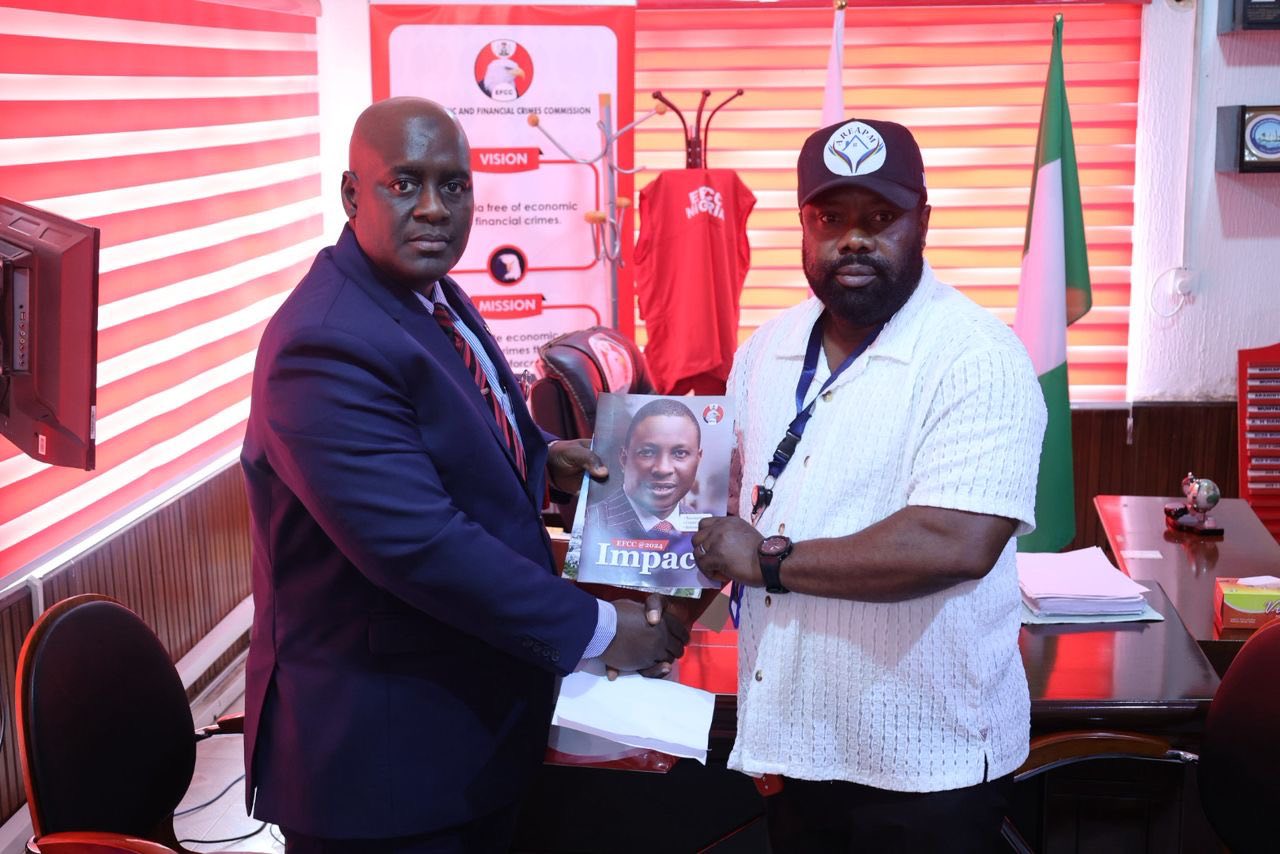
By Modupe Gbadeyanka
The chairman of the Economic and Financial Crimes Commission (EFCC), Mr Ola Olukoyede, has lamented how “people now defraud the government and individuals and invest in real estate.”
He raised this concern when he received the executives of the Association of Real Estate and Property Managers (AREAPM) in Edo State on Wednesday.
The EFCC chief, represented by the acting Zonal Director and Deputy Commander of the Commission, Mr Sa’ad Hanafi Sa’ad, warned real estate managers against money laundering.
“We have noted with grave concern that fraudsters are laundering money and hiding proceeds of crime through real estate and property. People now defraud the government and individuals and invest in real estate,” he stated.
He noted that the agency would continue to discharge its statutory mandate of bringing those who seek to circumvent the system to book.
“As a commission, we recognise the role of Real Estate and Property Managers. Property Managers are designated non-financial businesses and professions.
“So, we expect them to be professionals and uphold the relevant rules and regulations in the discharge of their duties,” he stated, adding that, “The commission will apply the laws when there is a breach of relevant rules and regulations.”
He assured the AREAPM executives of the organisation’s willingness to collaborate with them in dealing with fraud and criminality in the sector.
“We have a unit, the Land and Property Fraud Section, which attends to issues in that regard. So, when you have challenges, you can report to us,” he stated.
In his remarks, the chairman of AREAPM in Edo State, Mr Akpesiri Michael Egbonoje, stated that the essence of the visit was to seek areas of collaboration with the commission and work out ways of combating real estate financial crimes and fraud in the state.
“Part of our strategy is to familiarise ourselves with law enforcement agencies in the state and seek for collaborative relationships. As a body, we cannot do it alone; we need help in the areas of financial crimes.
“We have tried to sanitise the space, but we realised that your agency is at the apex when it comes to dealing with financial crimes.
“We believe that structured collaboration between AREARM and the EFCC will promote financial transparency, investor confidence, and accountability within the real estate sector.”
-

 Feature/OPED6 years ago
Feature/OPED6 years agoDavos was Different this year
-
Travel/Tourism10 years ago
Lagos Seals Western Lodge Hotel In Ikorodu
-

 Showbiz3 years ago
Showbiz3 years agoEstranged Lover Releases Videos of Empress Njamah Bathing
-

 Banking8 years ago
Banking8 years agoSort Codes of GTBank Branches in Nigeria
-

 Economy3 years ago
Economy3 years agoSubsidy Removal: CNG at N130 Per Litre Cheaper Than Petrol—IPMAN
-

 Banking3 years ago
Banking3 years agoSort Codes of UBA Branches in Nigeria
-

 Banking3 years ago
Banking3 years agoFirst Bank Announces Planned Downtime
-

 Sports3 years ago
Sports3 years agoHighest Paid Nigerian Footballer – How Much Do Nigerian Footballers Earn


